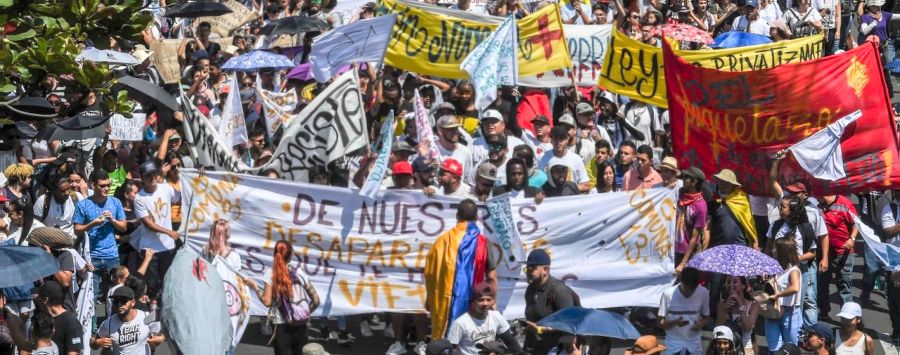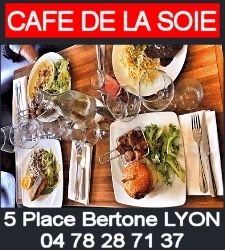MASSIVE MANIFESTATIONS IN COLOMBIA |
|
Latin America is shaken in recent weeks by a wave of protest that reached November 21 Colombia. Hundreds of thousands of people -200,000 according to Interior Minister Nancy Patricia Gutierrez, more than a million for the organizations behind the movement- took to the streets during a national strike  . .
Students, NGOs and opposition against President Ivan Duque. The strike and the marches convened by workers' unions were joined by students and indigenous people, as well as environmental and opposition organizations. "There is an accumulation of situations that we hope to see revised after this day, including a major national dialogue dialogue," said the president of the General Confederation of Labor. They marched to protest against the policies of the right-wing government of the highly unpopular President Ivan Duque and to defend the peace agreement signed with the guerrillas in 2016. Once is not customary, the Catholic Church itself had expressed his support for mobilization. Weary of corruption and insecurity, protesters denounced attempts by the government to flexibilize the labor market, weaken the public pension fund for private entities, and lower the retirement age. Students, for their part, demanded resources for public education, and the natives protective measures after the assassination of 134 of them since the arrival of Ivan Duque in power in August 2018. "Colombia has won this historic day of citizen mobilization," said in a statement the National Strike Committee. A dialogue with civil society The organizers called for an "immediate" meeting with the president and called on "citizens to be ready to take further action in the street if the government persists in its indifference to the demands." In the evening, the president said he heard the protesters without answering the request for direct dialogue. "Today, Colombians have spoken. We hear them. Social dialogue has been the main banner of this government. We need to deepen it with all sectors of this society, "he said. Clashes and three dead At the end of this mostly peaceful mobilization, clashes between protesters and police at the end of the day led to the death of three people and 270 others were wounded. "Cacerolazo", cooks' concerts sounded all over the country denouncing the violence of riot police. In Cali, southwest of the capital, and in Bogota, the curfew has been declared. This mobilization occurs in a turbulent climate in Latin America, with sociopolitical crises, with no common denominator, triggered in Ecuador, then Chile and Bolivia. |
|
| Andrew Preston for DayNewsWorld | |
 |
|



